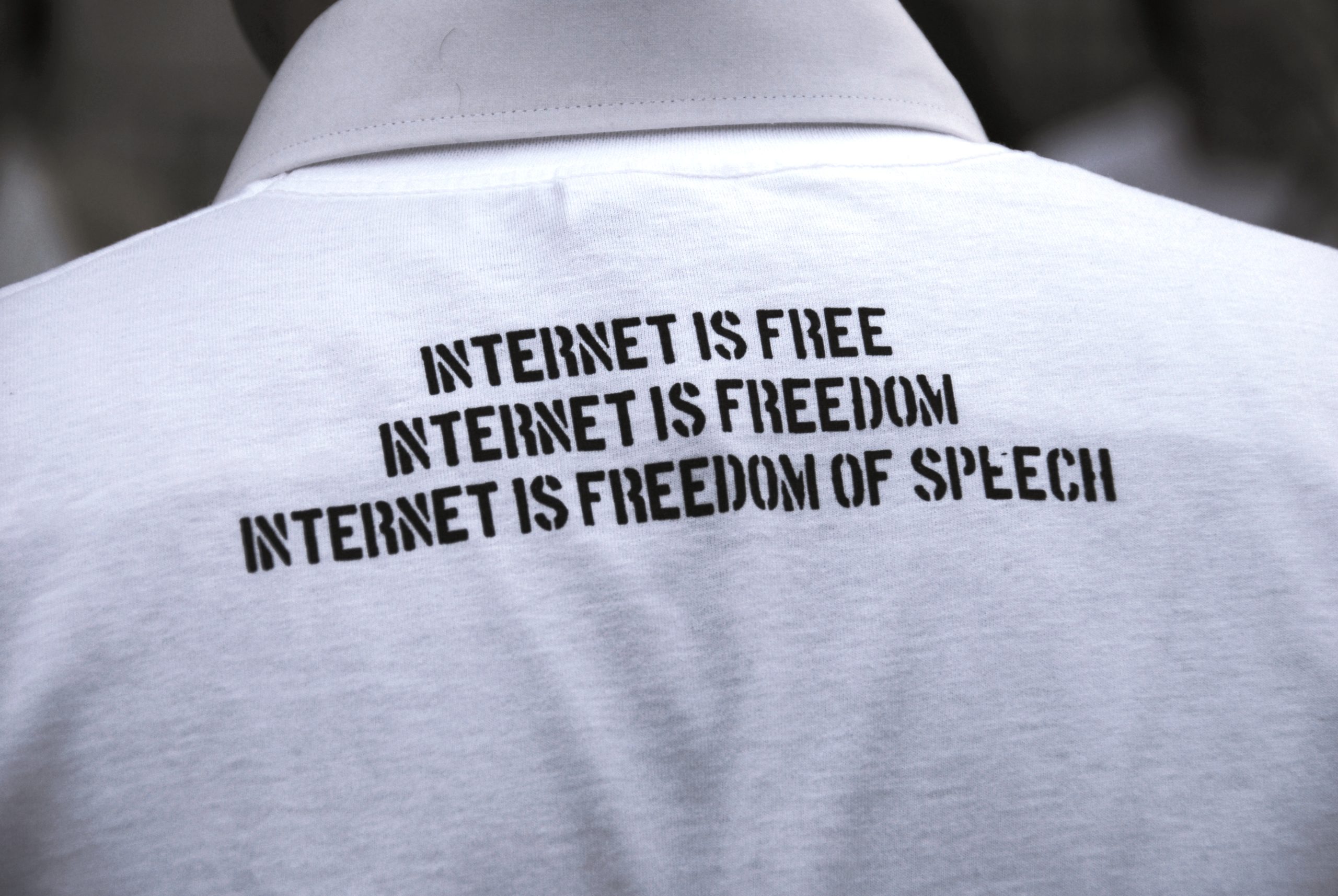
Humor on the web in Brazil: new challenges to freedom of expression
During the 19th LGBT Pride Parade, which took place in São Paulo last June, transgender actress Viviany Beleboni performed a controversial act in which she was dressed up as crucified Jesus in reference to the suffering of the LGBT community generated by prejudice. At the time, religious groups and organizations criticized the act – as they considered it offensive to their faith.
In light of the controversy, a politician from the state of Rio de Janeiro, Fabio Silva, proposed the Draft Bill nº 540/2015 in order to prohibit, within the state, any kind of public demonstrations that could ridicule or offend dogmas and beliefs of any religion. This could even prohibit theatrical performances which made reference to religions or the distribution of pictures and cartoons.
The draft bill imposes severe limitations on freedom of expression – the fines could add up to R$ 270,000.00. And although sensitive, religion should not be shielded from criticism and the free expression of thought. Recently, Vitor Teixeira, a cartoonist, published a cartoon satirizing the campaign “Gladiators of the altar”, which urged people who shared a specific faith to “fight for the word of God”. After the publication of the cartoon, he received a notification by “Igreja Universal” demanding him to remove the cartoon from his online channels of distribution (Facebook, Instagram, etc). Draft bills like this could prohibit this kind of criticism.
During the debates on the floor of the House of representatives at the state of Rio de Janeiro, the draft bill divided opinions and is currently waiting for further discussions. The question of how to strike a balance between free speech and sensitive topics like religion has not only reached the Legislative Branch, but also, with increasing frequency, reached the courts. A recent ruling from the 3rd Criminal Court of Barra Funda rejected the a lawsuit by Luiz Inacio Lula da Silva Institute, asking for explanations from TV host and comedian Danilo Genili, who tweeted “speculating” that the bomb attack that occurred at the Institute’s headquarters would have been “forged”. The court decision pointed out, among other considerations, that Gentili is a comedian, and that “obviously no one would take this tweet seriously, or believe it was true”. The decision also states that the only retaliation that could be made to the joke is to say that it was not funny at all, because guaranteeing freedom of expression only to contents that is pleasant to us is not freedom of expression, but authoritarianism.
Likewise, a judge from the 7th Civil Court of Brasília has denied a request for moral damages and for the prohibition of any future posts involving the Federal Representative and Pastor Marco Feliciano. The politician decided to go after “Sensacionalista”, a humorous news portal which creates humorous and fictitious headlines and news. In order to make reference to the stance of Marco Feliciano, who is strongly against marriage equality and LGBT rights, “Sensacionalista” published the following headline on the day the SCOTUS decided in favor of gay marriage: “Marco Feliciano cancels shipment of shampoo purchased in Miami”.
In his ruling, the judge said “Sensacionalista” only publishes fictitious “news”, addressing facts and situations and in humorous way to express criticism. Readers know that Sensacionalista’s publications do not depict reality, and thus the removal of their content would violate the right to freedom of expression and free press.
It is true there is a fine line between freedom of expression, hate or harmful speech. But in Brazil, oftentimes, concepts like libel and slander or the rights to image and honor are invoked in order to suppress criticism and expression of legitimate divergent opinions, which used humor as a way to address controversial topics. Protecting the freedom to create humor is a way to appreciate its power as a tool for a democratic expression.